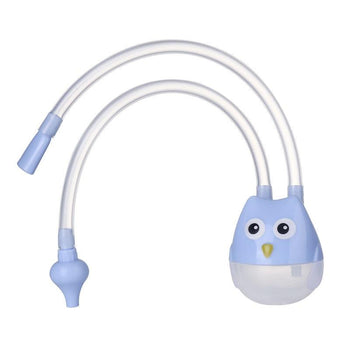Exhausting sleep regression at 4 months occurs when your baby wakes very frequently at night and/or takes short naps. Regressions at other ages, including 8 months, 11 months, 18 months, and 2 years, are temporary. Sleep regression at 4 months is a permanent change in the way your baby sleeps.
Learn more about this exhausting time and how to manage it with this guide.
The 4 month sleep regression
You probably just googled a 4 month sleep regression, as thousands of people do every month. Indeed, many parents begin to have sleep problems when their baby is between 3 and 5 months old. And these sleep issues can lead to sleep deprivation that lasts for days, weeks, or even months and years!
Why do our 4 month old babies sleep less well and why isn't it getting better?
This guide will help you by explaining what sleep regression at 4 months is, why your baby's sleep patterns have changed , and giving you tips for dealing with sleep regression at 4 months.
When does the 4 month sleep regression start?
Sleep regression at 4 months can start any time after 8 weeks, although some babies do not sleep well from birth. This regression can also start up to 5 months. The most common age is 3½ to 4 months.
How long does the 4 month sleep regression last ?
Sleep regression at 4 months never "ends" in the strict sense of the word. This is a permanent change in your baby's sleeping habits . Some babies will start (or recover) to sleep well in 2-3 weeks, while others have sleep patterns that need to be changed significantly in order to help them sleep well.
Sleep regression at 4 months: Babies' sleep patterns change permanently
Sleep regression at 4 months marks a permanent change in your baby's sleep patterns . Before your baby was 4 months old, her sleeping habits were very childish. What do I mean by that? Simply that babies sleep soundly most of the time. (That explains why newborns and very young infants tend to sleep anywhere, anytime!)
But after 4 months, all bets are off! As your baby's brain develops, around the fourth month, his sleep patterns change . They look more and more like yours. Today, he goes from light to deep sleep more often, just like you.
If you look at it that way, it's clear that sleep regression at four months is a very normal and healthy developmental milestone , as is learning to walk and talk. So if your baby is going through the 4 month sleep regression, congratulations, her growth and development is on track! 🙂
But also, if your baby is in this 4 month regression period, you have all my sympathy. Indeed, as many of you are well aware, your baby's new sleeping habits are producing many more nighttime awakenings and short naps . Every time your baby goes from deep sleep to light sleep, there is a good chance that he will wake up, and once he wakes up, he will surely need your help to get back to sleep. He may not know how to enter his next sleep cycle.
4-Month Sleep Regression: How to Manage It Now
Here's what to remember about sleep regression at 4 months: it doesn't go away. It is different from other sleep regressions that occur at 8, 9, or 10 months, and toddler sleep regressions that occur at 18 months and 2 years. These sleep regressions eventually pass within a few weeks, and your little one's sleep returns to normal. This is not the case for this one. The changes that occur with sleep regression at 4 months are permanent .
But don't let that depress you completely! There are ways to overcome the 4 month sleep regression and teach your baby a new way to sleep.
In the beginning, however, here's my advice: handle the situation as best you can. If you are in the early days of regression, you are probably exhausted beyond measure and feeling completely frustrated. It's normal. Spend the next few days/weeks adjusting, as you work out your sleep training plan.
10 tips for surviving 4-month sleep regressions
How can you deal with these difficulties?
Here are some strategies you can use to encourage your baby to sleep more during the 4-month sleep regression, until you're ready to overcome it for good (see below for 10 more tips):
1. Continue to help your baby fall asleep as he has been doing so far.
If you have breastfed or rocked your baby, continue to do so for now. Same for co-sleeping or holding it to sleep. Yes, these are sleep associations that will ultimately interfere with your baby's sleep, and which you will have to get rid of later. But don't worry just yet, do what you need to do to help your baby fall asleep.
2. Swaddle and/or offer a pacifier
If you've already done this (and it worked), continue. If not, try these techniques to soothe your fussy baby and temporarily promote better sleep until you work on moving on for good (see below). If your baby slips out of the swaddle and that's why he wakes up at night, start using a sleeping bag . While sleepwear isn't a magic bullet, it can improve sleep enough to give you time to develop a plan moving forward.
3. Give dream feed
A "dream feed" is the fact of waking up your baby before going to bed, to give him food. This will keep him from waking up at night and may help him sleep a little longer. It's not a foolproof strategy, but it works well for some babies.
4. Use the swing if you have one
The swing can be a great way to soothe your fussy baby and help her take a nap that wouldn't otherwise happen. Just be sure to watch your baby while they sleep in the swing. You should not let him sleep there for long periods of time.
5. Darken the bedroom
If your baby has trouble napping, consider darkening the room to allow him to take longer naps. Our night light with star projector is the best way to put baby to sleep easily. Turn the bedroom into a starry night.
6. Teach your baby good habits
Putting your baby to sleep at the "wrong" sleep times can have disastrous results. Be sure to follow an appropriate program for 4-month-olds. The right sleep schedule can do wonders!
7. Check your baby's development
Before you consider making permanent changes to your baby's sleeping habits, you should check that his development is on track, that you are feeding him the "right" amount of food, that he is not experiencing a growth spurt, and that he is growing well.
8. Use white noise
If you're not already using white noise, consider adding it to the bedroom. Discover the Sleepyzz™ , ideal for putting baby to sleep in the best conditions. This machine reproduces a white noise that allows baby to calm down.
White noise helps babies fall asleep more easily. Click here to learn more about white noise.
9. Start researching
If you haven't already, it's time to do more reading and research on baby sleep. Learning about sleep regression at 4 months is a good first step, but learning more about your baby's sleep needs is essential to successfully overcoming sleep regression for good.
10. Ask for help!
This is the time to lean on your friends and family members. Let other people hang out with the baby while you nap.
These 10 tips should all be seen as short-term fixes to help you get some rest in preparation for starting to teach your 4-month-old baby a new way to sleep.
Below are 10 tips to permanently overcome sleep regression at 4 months.
10 tips to definitely overcome the 4 months of sleep regression
Once you understand sleep regression at 4 months and regain some short-term sleep, it's time to start teaching your baby a new way to sleep. This process is called sleep training. But, contrary to what many believe, this sleep training isn't just about letting your baby cry or not.
We approach baby's sleep from a holistic perspective and believe that sleep training without considering "the whole thing" is a bit like trying to be healthy by only considering the whole thing. diet but without worrying about exercise, sleep, water intake, limiting tobacco and alcohol, etc. It's the combination of many things that allows us to meet and exceed our sleep goals.
Here are 10 tips to definitely overcome the 4 months of sleep regression:
1. Find out how much sleep your baby needs
Not knowing how much sleep your baby needs can put you on the wrong track from the start. At this age, not all babies sleep 12 hours at night and 4 hours during the day, and similarly, if your baby sleeps only 10 hours at night and 2 hours during the day, he is not getting enough. Set realistic expectations from the start.
2. Determine how many naps
Should you give him two, three or four naps at this age? Read our article dedicated to the number of naps your baby needs by clicking here .
3. Don't keep baby awake for too long
Excessive fatigue is one of the main reasons babies take short naps or wake up a lot at night. It is very important to have the right schedule to succeed in sleeping!
4. Avoid napping mistakes
The more a baby naps during the day, the better he sleeps at night. Find out 10 facts about baby naps here .
5. Feed your baby more during the day
As babies age and become more active, they increase the amount of food they need during the day. And, the more they eat during the day, the less they need to eat at night!
6. Be careful with solid foods
Some parents believe that starting with solid foods could help their 4-month-old sleep better. But will giving solid foods right from the start really help you sleep? Not always. Learn when to start solid foods ( What you need to know is here ) and consider waiting a little longer.
7. Don't get up too early
Did you know that the light that stimulates our eyes is what signals our brain to wake up or sleep? Be careful not to start the day too early, even if your baby wakes up very early.
8. Wake your baby
Putting your baby to bed after a regular routine teaches him to go back to sleep on his own if he wakes up. This means your baby can sleep through the night and take long naps. But, does your baby need to be sleepy? Learn what ' drowsy but awake ' means and how hard you need to work on it.
9. Change your baby's sleep associations
When you are ready and you feel your baby is ready, you will need to start gradually changing these sleep associations so that your baby can get more sleep on his own. This is where more traditional sleep training comes in. There are many techniques and methods to achieve this, which one you choose will depend on your family's unique circumstances, your baby's temperament and your own parenting philosophy.
10. Re-evaluate from time to time
Babies grow and change very quickly in the first few years. From time to time, and especially if sleep starts to deteriorate again, you may need to reassess your baby's sleep. Does he need a new schedule? Is he developing new sleeping habits that aren't working? Will he experience another sleep regression? Be prepared for your baby to change and keep learning about their sleep needs so you know what to do.
Following these tips for your 4 month old should help you get back to sleep in no time!
And you, how are you coping with the 4-month sleep regression? Any advice for struggling or exhausted parents? Tell us in comments!
Do you want your baby to sleep through the night?
In this free guide , you'll discover 5 things you absolutely need to know.
With a unique approach and practical tools for success, this guide will help you and your baby sleep better through the night.



























































































